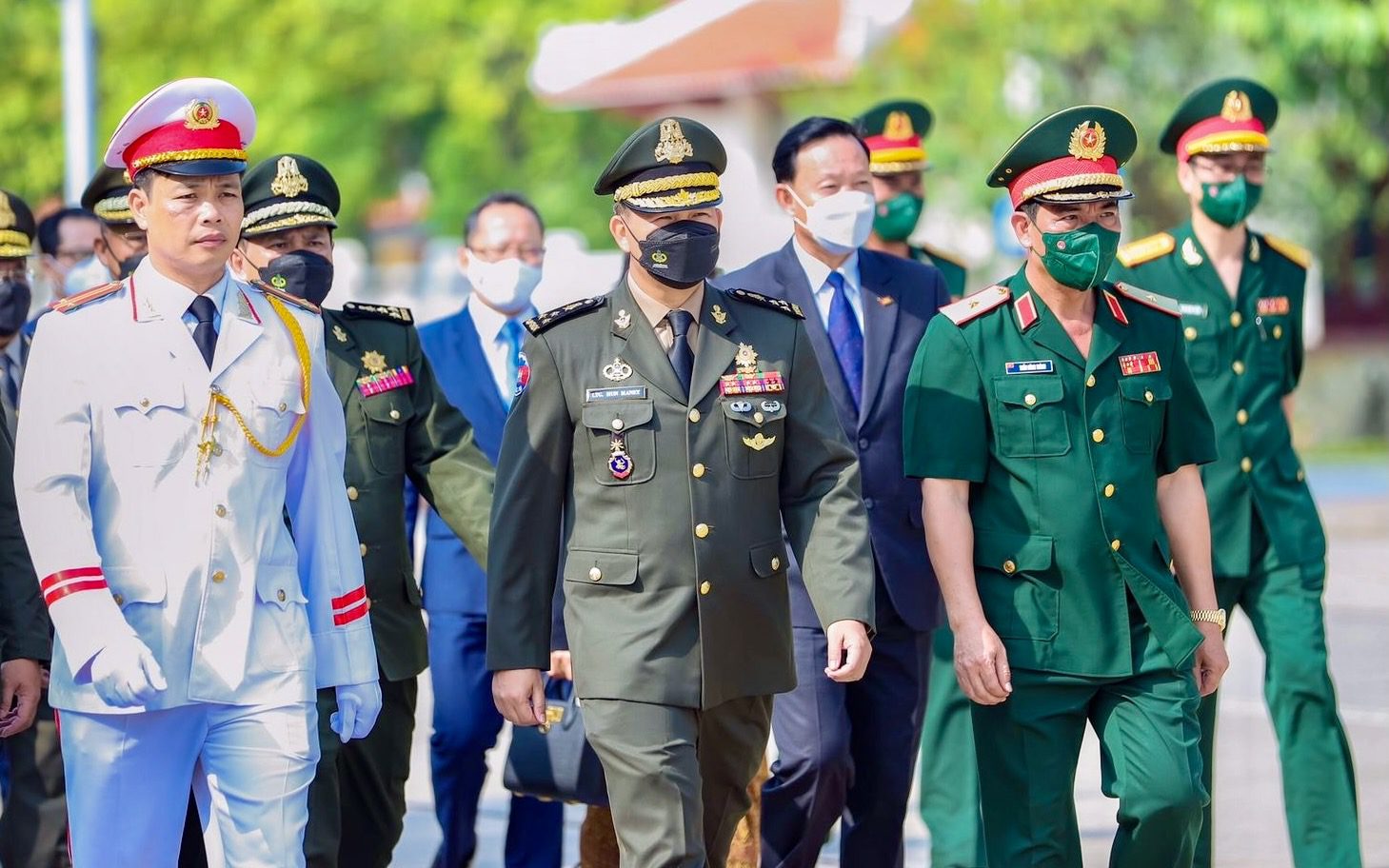Army commander Hun Manet announced restrictions on recruitment and transfers of military personnel, saying that too many members were trying to move to the same units as their family served in or transfer to more comfortable postings.
In a video posted to his Facebook page on Sunday, Manet said that all relatives of veterans and active soldiers can enlist in the armed forces, but they must complete three months of training before being placed in the army.
“It does not matter whether they are the children of the soldiers or not, they have to finish three months [of training]… they will be assigned by the army unit,” he said.
He continued that some 60% of his border unit requested a transfer to the upper, or national level, making it crowded and putting the border at risk. Manet said recruits will have to serve their initial assignment for at least 24 months before asking for a transfer.
He added that relatives who used to serve in the army have pushed for their children to be in the same unit they previously served in, but the prime minister’s son emphasized that they could not influence the army’s placement decisions.
Manet is the eldest son of Prime Minister Hun Sen, who is also a five-star general. The army commander was anointed at a CPP congress in December as the heir apparent to take over from his father Hun Sen.
Manet, a three-star general, also downplayed the relevance of rankings in the army.
“For rank I would like to explain that it is not how many we have on the shoulder but the value [of the military career],” Manet said.
“People ask me since I am commander of the army why I do not have four stars, and I tell them that it is not important,” he said in the video. “When I went for the army commander meeting, Brunei’s commander has only one star but is equal to me, while Singapore’s [army leader] has two stars but is equal to me. It is not important.”
Army spokesperson Mao Phalla told VOD that the army is seen as an opportunity for many people in the rural provinces, as it might lead to a more comfortable life for those coming from the provinces, but he reemphasized Manet’s requirements.
“In our country of Cambodia as you know that there are many provinces, and each [family] has their own children and want their children to be comfortable and stay close to them but if everyone thought like this, other rural provinces cannot have [children] in the army so that is why he set [the transfer requirement] like that at 2 years, so they can develop soldiers,” he said.
Phalla added that there were many new recruits put into the same unit as their relatives in the past, but that Manet believed this was not a productive policy.
“In the past there have been many [cases] like this, and [Manet] mentioned that for the future it should not be that children or brothers and close relationships are in the same unit…this could have a negative impact for the army and [Manet] has changed [this policy] over time but gradually.”












